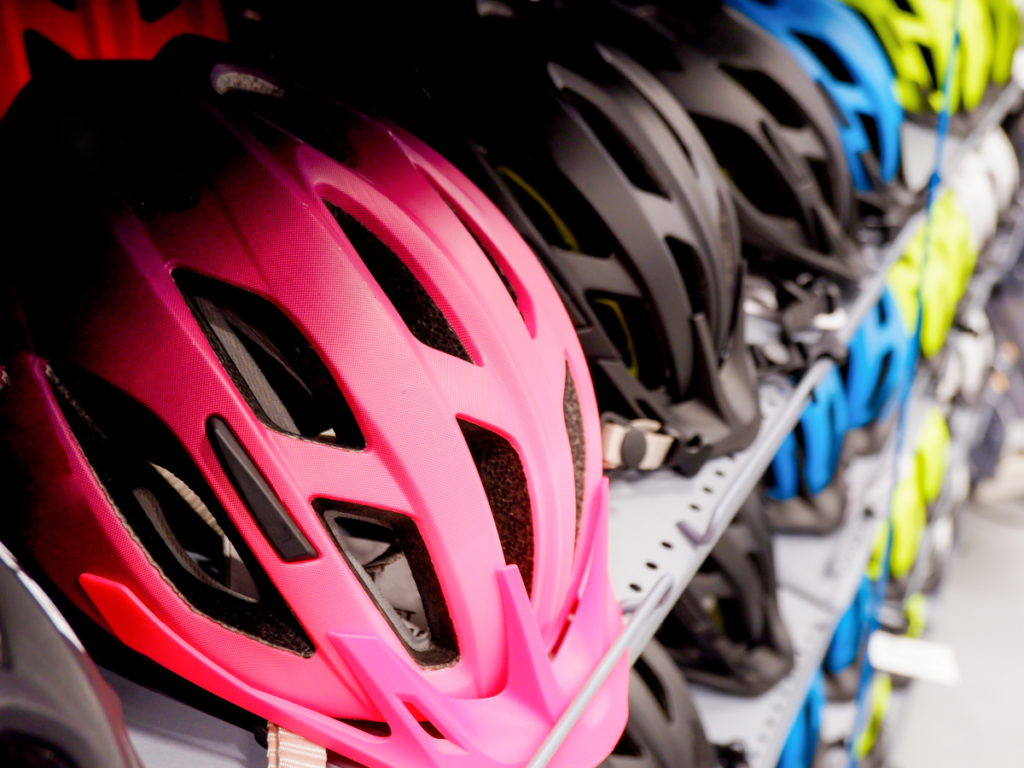
California Vehicle Code 21212 provides that all riders and passengers under the age of 18 are legally required to wear a helmet when using a bicycle, a non-motorized scooter, in-line roller skates, or a skateboard to travel along streets or bikeways, or on any other public bicycle path or trail. This includes anyone under 18 who is in a restraining seat that is attached to the bicycle or in a trailer towed by the bicycle.
Compliance with section 21212 requires a bicycle helmet to be properly fitted and fastened and meet the standards of the American Society for Testing and Materials (ASTM) or the United States Consumer Product Safety Commission (CPSC) or standards subsequently established by those entities. A person should not sell or offer for sale a helmet that does not meet these requirements.
The penalty for violating California Vehicle Code 21212 is a fine of not more than $25. The parent or guardian of a minor is jointly and severally liable to the minor for the amount of the fine. Pursuant to California Vehicle Code 40611, the penalty will be dismissed if the parent or legal guardian delivers proof to the issuing agency within 120 days after the citation was issued that the person has a helmet meeting the specified requirements and the person has completed a local bicycle safety course or a related course, if one is available, as prescribed by authorities in the local jurisdiction.
Bicycle Helmet Safety Standards
According to the Center for Disease Control and Prevention (CDC), nearly 1000 Americans die, and over 130,000 are injured annually in bicycle crashes and falls. Research conducted by the National Institute of Health (NIH) demonstrates how bicycle helmets significantly reduce the risk of injury or death. In the event a collision, wearing a helmet reduces the risk of serious head by 60 percent, traumatic brain injury (TBI) by 53 percent, and severe injury or death by 34 percent.
All bicycle helmets sold in the U.S. are legally required to meet Consumer Product Safety Commission (CPSC) standards. The CPSC tests at least eight helmets in order to certify that a given model is safe.
All helmets certified by the CPSC, ASTM, the Safety Equipment Institute, and the Snell Memorial Foundation meet California safety standards. To determine if a helmet complies with CPSC standards, a steelhead is placed inside the helmet before it is dropped onto a flat anvil from a distance of 2 meters, a curbstone anvil from a distance of 1.2 meters, and a spherical anvil from a distance of 1.2 meters. In all three tests, the failure threshold, which is the maximum force exerted on the head, must not exceed 300 grams. These drops are conducted at varying temperatures and under simulated rainy conditions.
Helmet strap strength is measured by attaching a weight to the helmet strap and then dropping it. The strap must be able to withstand a force of 24 Joules.
To be effective, a bicycle helmet must be worn properly. The helmet’s strap must be securely buckled underneath the rider’s chin. If the rider is only able to insert two fingers beneath the strap, that’s an indication that the helmet is properly adjusted. The helmet should remain level on the head so it doesn’t block the rider’s field of vision.
Helmets should be replaced when they’ve been used excessively or after absorbing the impact of an accident. Bicycle owners and parents of children who wear bike helmets for protection should check helmets regularly for signs of wear and tear. Cracks in the shell or liner, missing pads, or weakened straps are all signs of a helmet that requires replacement.
Recall Due to Injury Risk Caused by Faulty Straps
The design of a bicycle helmet must ensure that a rider is safely protected. Unfortunately, some Bell Sports Giro Merit helmets do not comply with CPSC safety standards. The straps on the defective Giro helmets may disengage when pressure is applied. Faulty helmet straps can result in serious injury during a crash. The defective Giro helmets were sold at various retail outlets between September 2021 and January 2023 and retailed for about $220. Although, no injuries have been reported due to the defective helmets, all riders who have purchased a Giro Merit helmet should stop using it immediately and contact the company right away. The company will issue a free replacement helmet or provide the owner with a complete refund if that’s what they prefer.
Bell Sports is voluntarily recalling 15,000 Giro Merit helmets sold in the United States and about 1,500 sold in Canada. The recall includes helmets that were manufactured prior to January 2023.
The defective Giro helmets can be identified by looking for the model name “Merit” on the rear of the helmet. Helmet owners will find a sticker inside the helmet with “Merit” written on it, as well as the alphanumeric identifier GH230.
You can learn more about the Giro Merit helmet recall by calling the company at (800) 456-2355 or emailing them at consumersupport@bellgiro.com.
NordstrandBlack PC Bike Helmet Giveaway
NordstrandBlack PC advocates expanding bicycle helmet laws to include riders of all ages. To highlight the importance of bicycle helmet safety, our firm will be giving away six new bike helmets – three in adult sizes and three in children’s. We’ll be having drawings in September, October, and November.
Anyone who is 18 years or older and lives in Santa Barbara County is eligible to enter our contest. Details can be found on our Facebook page.